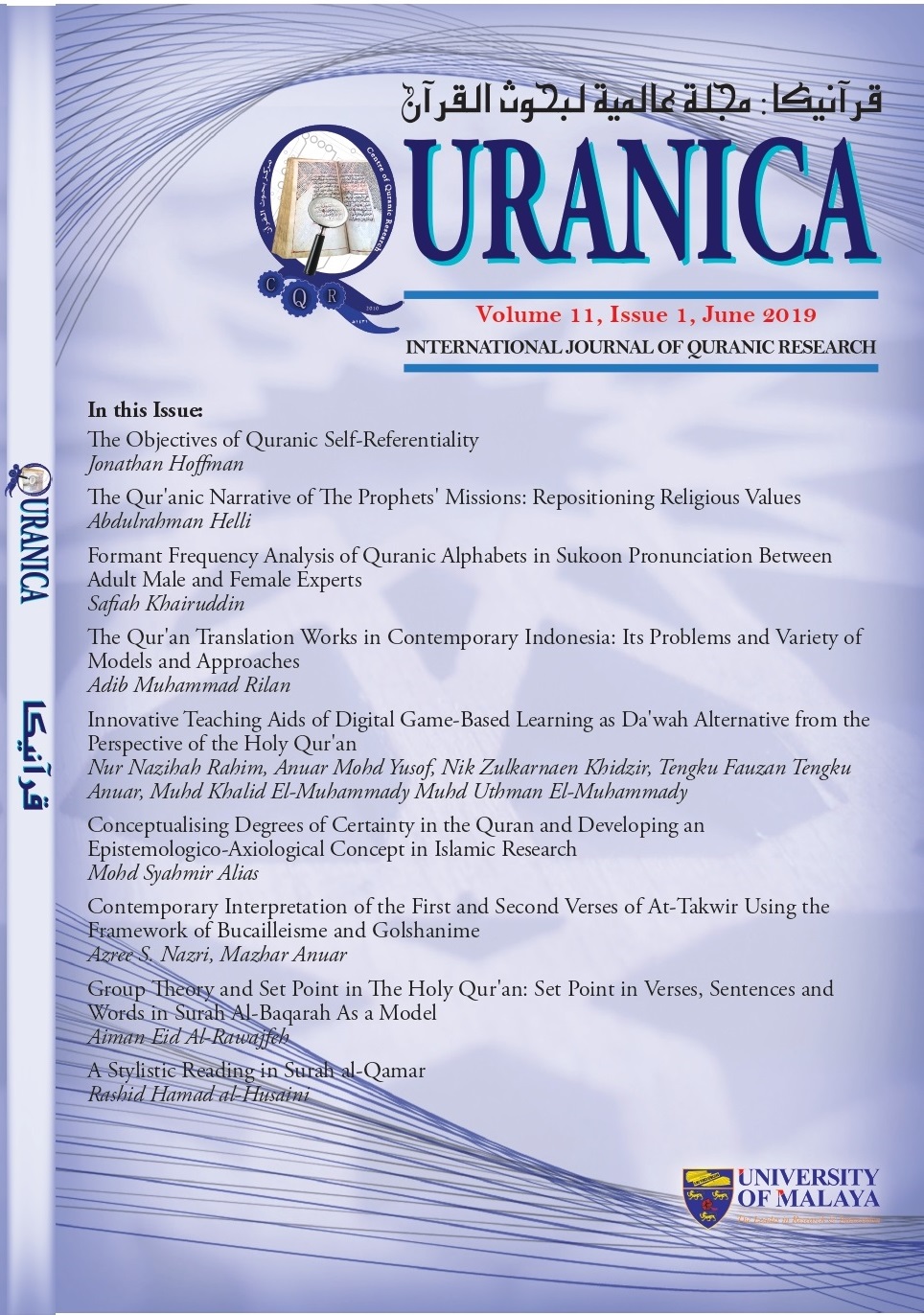The Objectives of Quranic Self-Referentiality
Main Article Content
Abstract
The purpose of this analysis is to analyze the self-referential nature of the Quranic revelation, and address why such referentiality was necessary. The central premise of this research is that Quranic self-referentiality was primarily designed to achieve three objectives: (1) to establish that the Quran is indeed revelation (scripture) from God (and not constructed by Muhammad, the product of “sooth-sayings”, etc.), (2) to establish itself in relation to other texts revealed by God, specifically within the Abrahamic tradition (i.e. in the same lineage of the other revealed scriptures – confirmation of that which came before it), and (3) to assert its authority as the final revelation and the seal of the original covenant with Abraham, thereby correcting misinterpretations, distortions, and divisions made regarding previous revelations. These three objectives can be thought of as (1) authorization, (2) legitimization, and (3) culmination.[1] In this sense, the purpose of Quranic self-referentiality is to ultimately establish this revelation on the same/equal plane as the other revelations within the Abrahamic tradition, for only by first establishing itself as “equal” could the Quranic text then move on to its goal of critically addressing the receivers of previous revelations (the Ahl al-Kitab – People of the Book) on an equal level, and assert itself as the final revelation.
Downloads
Article Details
Disclaimer
QURANICA makes every effort to ensure the accuracy of all its contents. However, opinions, discussions, views and recommendations are expressed in this journal do not necessarily reflect the official policy of QURANICA or views of its editors or publishers. Therefore, QURANICA and its publishers will not be liable for any controversy may be arisen. The journal reserves the right, at its sole discretion, to change its terms and conditions of publications.
Copyright
It is a condition of publication that manuscript submitted to the journal have not been published, accepted for publication, nor simultaneously submitted for publication elsewhere. By submitting a manuscript, the author(s) agrees that copyright for the article is transferred to the publisher, if and when the manuscript is accepted for publication.
